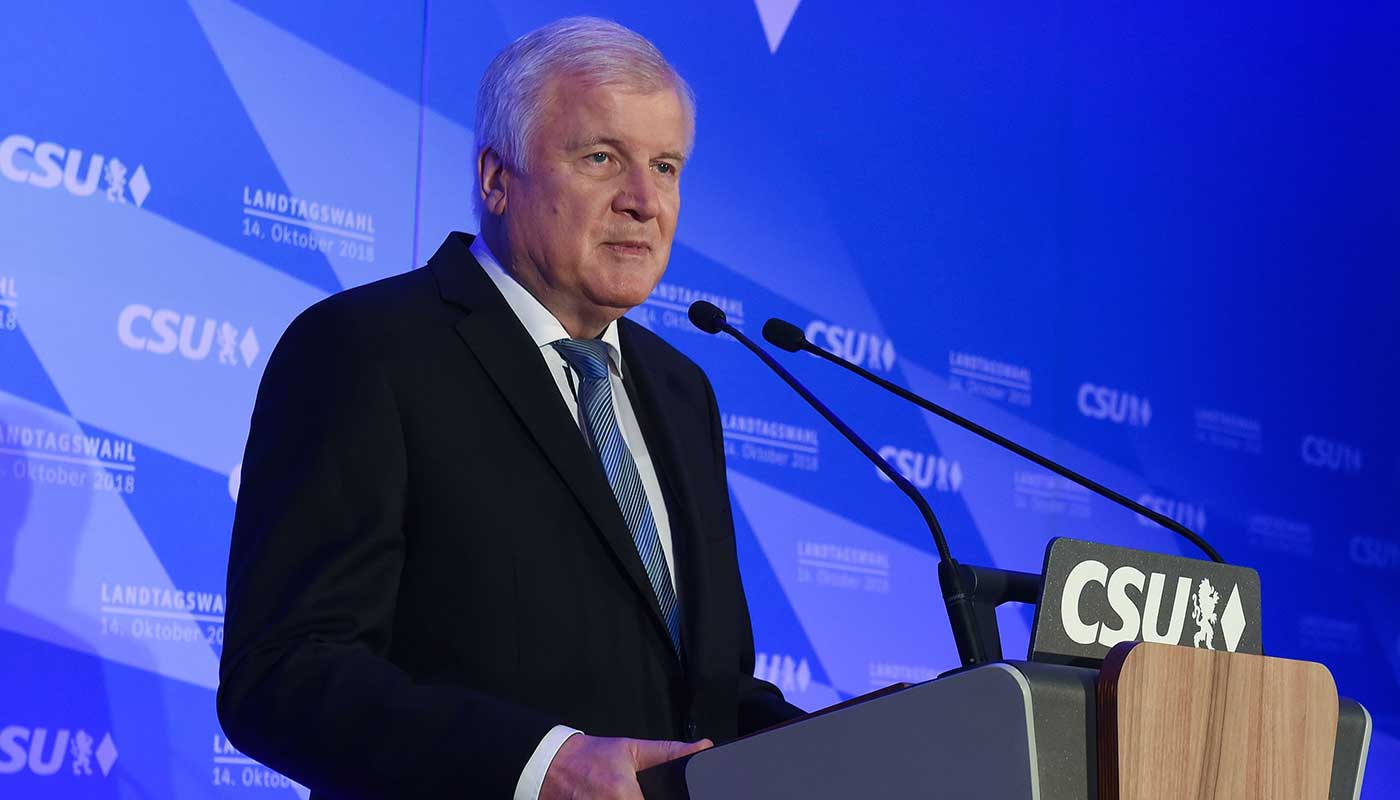Angela Merkel’s CSU allies lose majority in Bavarian ballot
State election result set to ‘rattle’ German leader’s ‘grand coalition’ government

A free daily email with the biggest news stories of the day – and the best features from TheWeek.com
You are now subscribed
Your newsletter sign-up was successful
Germany’s Christian Social Union (CSU) party, a key ally of chancellor Angela Merkel’s Christian Democrat Union (CDU), has lost its majority in the Bavarian state parliament following an election yesterday.
The CSU received only 37.2% of the vote, with minor parties winning a “huge boost”, according to CNN. The result – 10 percentage points lower than five years ago – is a huge blow to the CSU, which has governed the region almost single-handedly since 1957.
CSU party leader Horst Seehofer (pictured above) said it was “not a nice day”, but maintained the result still gives the CSU a mandate to form a government, despite a tumble at the ballot box.
The Week
Escape your echo chamber. Get the facts behind the news, plus analysis from multiple perspectives.

Sign up for The Week's Free Newsletters
From our morning news briefing to a weekly Good News Newsletter, get the best of The Week delivered directly to your inbox.
From our morning news briefing to a weekly Good News Newsletter, get the best of The Week delivered directly to your inbox.
The pro-immigration and environment Greens party came in second on the ballot, taking 17.5% of the vote, while the anti-immigration far-right Alternative for Deutschland (AfD) party took 10.2% of the vote, giving it seats in the Bavarian parliament for the first time.
Merkel’s other “grand coalition” ally, the centre-left Social Democrats, were on course for a disastrous result of less than 10%, half of the number of votes it gathered in 2013.
The Washington Post reports that “constant squabbling in Merkel’s national government” and an internal power struggle within the CSU had hurt the party’s chances at this election.
The CSU had also taken a harder line on the hot-button issue of immigration, which has dominated the region since the refugee crisis in 2015, which saw thousands of migrants entering Germany.
A free daily email with the biggest news stories of the day – and the best features from TheWeek.com
-
 The EU’s war on fast fashion
The EU’s war on fast fashionIn the Spotlight Bloc launches investigation into Shein over sale of weapons and ‘childlike’ sex dolls, alongside efforts to tax e-commerce giants and combat textile waste
-
 How to Get to Heaven from Belfast: a ‘highly entertaining ride’
How to Get to Heaven from Belfast: a ‘highly entertaining ride’The Week Recommends Mystery-comedy from the creator of Derry Girls should be ‘your new binge-watch’
-
 The 8 best TV shows of the 1960s
The 8 best TV shows of the 1960sThe standout shows of this decade take viewers from outer space to the Wild West
-
 Epstein files topple law CEO, roil UK government
Epstein files topple law CEO, roil UK governmentSpeed Read Peter Mandelson, Britain’s former ambassador to the US, is caught up in the scandal
-
 Iran and US prepare to meet after skirmishes
Iran and US prepare to meet after skirmishesSpeed Read The incident comes amid heightened tensions in the Middle East
-
 Israel retrieves final hostage’s body from Gaza
Israel retrieves final hostage’s body from GazaSpeed Read The 24-year-old police officer was killed during the initial Hamas attack
-
 China’s Xi targets top general in growing purge
China’s Xi targets top general in growing purgeSpeed Read Zhang Youxia is being investigated over ‘grave violations’ of the law
-
 Panama and Canada are negotiating over a crucial copper mine
Panama and Canada are negotiating over a crucial copper mineIn the Spotlight Panama is set to make a final decision on the mine this summer
-
 Why Greenland’s natural resources are nearly impossible to mine
Why Greenland’s natural resources are nearly impossible to mineThe Explainer The country’s natural landscape makes the task extremely difficult
-
 Iran cuts internet as protests escalate
Iran cuts internet as protests escalateSpeed Reada Government buildings across the country have been set on fire
-
 US nabs ‘shadow’ tanker claimed by Russia
US nabs ‘shadow’ tanker claimed by RussiaSpeed Read The ship was one of two vessels seized by the US military